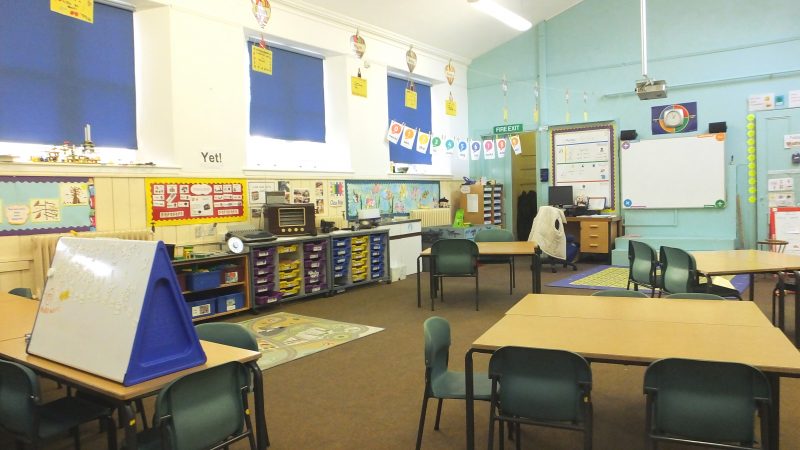February 1st marks the first day of planned strike action by teachers demanding an above inflation pay rise.

Teachers will join civil servants, train drivers, university staff and bus drivers on strike tomorrow in what is set to be one of the biggest days of industrial action for decades.
In the first of seven planned strike dates by the National Education Union (NEU), tomorrow’s strike will see organised demonstrations by their members take place across the country.
Teachers are asking for a fully-funded, above inflation pay rise having seen historic real-terms pay cuts in the last decade.
This comes after the government were accused by the NEU of squandering an opportunity to avoid strike action, following ‘disappointing’ talks with the Education Secretary Gillian Keegan yesterday.
Sarah Green, a second year early career teacher and secondary English teacher, spoke to LFF about what a decade of cuts has done to the sector.
“We are currently facing a teacher retention crisis which is an accumulation of a decade of funding cuts.
“The last time we had a pay rise was 2006, and it’s affecting every area of the sector – be it funding for buildings, staff resources and missing out on appropriate SEN staff.
“With the cost of living crisis we’re now looking at struggling to heat buildings and it’s only going to get worse.”
She added: “I real struggle to see how anyone is going to be a teacher for longer than five years if this is how it’s going to play out.”
Currently one in three teachers leave education within five years, as schools struggle against increased staff vacancies.
Last September saw almost a third fewer trainees begin teacher training than are needed.
Sarah highlighted how pay and conditions go hand in hand, with the strike tomorrow about a funded pay increase, so money for schools which includes teachers’ pay.
Since 2010, teachers have lost 23% in real-terms pay, and support staff 27% over the same period.
The average 5% pay rise for teachers this year is some 7% behind inflation.
Teachers who are reluctant to strike do so because they are disinclined to lose a day’s pay, said Sarah, as they face increased cost-of-living pressures that their salary can’t match, especially early career teachers.
“It is a case of leveraging how much you would miss out, against what you would lose for the foreseeable future should you not go for strike action.
“So every 1 per cent we gain in these negotiations it would cancel out a full four days’ strike.
“So I understand concerns about taking strike action, but if you’re looking to do this profession in the long term you need to be looking at the long-term ramifications of an underfunded system, because it’s only going to get worse unless we demand that increase.”
However there is a growing ‘revolutionary spirit’ among teaching staff since the ballot results, which saw over 90% of members vote to take strike action in England, and over 92% in Wales.
“There’s definitely a feeling of galvanisation particularly since the ballot came out,” said Sarah.
“I have noticed there is much more of a revolutionary spirit, perhaps due to public support and seeing the success of other strike action which creates a sense of hope and solidarity.”
This is evident in the recent news that the NEU recorded over 32,000 new applications since announcing strike action.
The NEU have said the government ‘squandered an opportunity’ to avoid strike action following failed talks with the Education Secretary Gillian Keegan yesterday.
Dr Mary Bousted and Kevin Courtney, Joint General Secretary of the National Education Union, said: “The Government has been unwilling to seriously engage with the causes of strike action.
“Real-terms pay cuts and cuts in pay relativities are leading to a recruitment and retention crisis with which the education secretary so far seems incapable of getting a grip. Training targets are routinely missed, year on year.
“This is having consequences for learning, with disruption every day to children’s education.
“We can do better as a nation, for education, for our children, if we invest more. That is in the gift of this government. It should start with a fully-funded, above inflation pay rise for teachers.”
The NEU national strike day on Wednesday 1 February will affect 23,400 schools in England and Wales and see demonstrations take place across the country in solidarity with strikers and to defend the right to strike.
We will be covering the strike action on the ground in London tomorrow.
Hannah Davenport is trade union reporter at Left Foot Forward
(Photo credit: Creative Commons – Educators .co.uk)
Left Foot Forward’s trade union reporting is supported by the Barry Amiel and Norman Melburn Trust

To reach hundreds of thousands of new readers we need to grow our donor base substantially.
That's why in 2024, we are seeking to generate 150 additional regular donors to support Left Foot Forward's work.
We still need another 117 people to donate to hit the target. You can help. Donate today.



